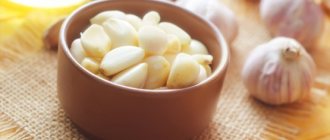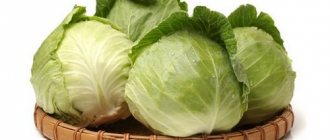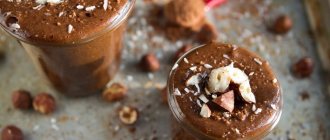Sour taste, bright citrus aroma, an indispensable remedy for the treatment of colds and flu - from this description it is easy to guess that we are talking about lemon. Rich in vitamin C and B vitamins, this fruit has a beneficial and complex effect on the human body: it stimulates the immune system, strengthens and tones the nervous system, helping to fight stress, and removes toxins and waste.
Despite the fact that for many lemons have become an ordinary fruit that does not require special attention when purchasing, there are a number of recommendations that allow you to choose a more ripe and juicy fruit. The article discusses in detail how to store lemons at home so as not to lose the benefits of the fruit.
Selection and preparation of fruits
For storage, choose ripe, firm, intact, brightly colored fruits. To preserve moisture and freshness, fruits are prepared:
- lubricate with vegetable oil;
- wrapped in parchment paper.
These measures protect the lemons from drying out and prevent the spread of rot and disease.
Reference. An indicator of fruit maturity is the shine of the peel. In unripe fruit it is matte.
Where to store
Lemons hold:
- in a refrigerator;
- in the cellar;
- in an apartment at room temperature;
- in the freezer.
Large volumes of citrus fruits are stored in the cellar:
- in sand, which protects against drying out;
- in boxes with sawdust, pre-wrapped in wax paper.
At room temperature, the fruits can be stored for up to two weeks. You can increase the storage time by a week by lubricating the fruit peels with vegetable oil.
Important! When stored at room temperature, lemons should not be placed in plastic bags.
The fruits are stored in the freezer for several months. The slices, zest, grated lemon, and squeezed juice are frozen.
Rules for storing citrus fruits
To store lemons for a long time, it is worth considering a number of features.
Temperature
The optimal temperature for storing lemons should be +6-8 degrees. Serious fluctuations in parameters are unacceptable. A decrease in temperature results in fruit freezing. This causes them to soften. An increase in indicators leads to rapid wilting and dryness of fruits.
Illumination
It is recommended to immediately remove fresh fruits to a dark place. They should not be exposed to sunlight.
Humidity
Humidity parameters should be 75-85%.
Neighborhood
Citrus fruits should not be placed next to fruits that have an intense aroma. Volatile aromatic substances easily dissolve in lemon essential oils, giving them an unpleasant aroma.
What to store in
Storing fruits in a jar is popular:
- The jar of lemons is filled to the top with water and placed in the refrigerator. The water is changed daily.
- A jar of peeled fruits is sterilized in a water bath, and new fruits are added as needed. The container is hermetically sealed with a lid. Store in a cool place.
Features of preparing lemon with sugar for the winter
A popular option for preserving lemons in winter is to preserve the fruit in sugar. The fruits are soaked, cut into slices, and covered with sugar. After half an hour, the product is packaged in glass jars and placed in a deep saucepan with water. You need to heat the jars until the sugar is completely dissolved. Then the containers are rolled up with sterilized lids.
Required:
- lemons – 5-6 pcs.;
- sugar – 300 g per jar;
- cloves or cinnamon.
You can harvest citrus fruits whole, but make cuts on one side to separate the juice.
Specifics of choosing citrus fruits
Depending on the variety, lemon fruits can have different shapes, sizes, and smoothness of the peel.
Selection rules:
- Choose fruits with a uniform color, without depressions, signs of rotting, or black spots.
- When squeezed, the lemon peel should not be deformed.
- The smell of citrus should be noticeable through the peel.
- The shiny surface of the fruit indicates paraffin treatment.
- The presence of green spots on the peel is a sign of unripe fruit.
- The uneven surface of a citrus fruit is a sign of a thick peel.
Any defects in the shell indicate improper cultivation or storage. To make preserves, jams and drinks for the winter, it is better not to use soft fruits. If the purchased fruit is bitter, hot water in which it is immersed for a few seconds will help correct the situation.
Preparing the dishes
You need to prepare preserves, jams, and citrus drinks in an enamel container or stainless steel pan. Do not use aluminum, copper utensils or containers that show signs of chipping or damage. The acid contained in lemons will cause the metal to react and allow harmful substances to penetrate into the workpiece.
The finished product should be stored in glass containers, washed and sterilized in advance. The lids of the jars must also undergo heat treatment.
Dried lemon can be kept in glass or paper bags.
Storage methods
Fruits are stored in different states. To choose a convenient way to preserve them for a long time, we offer several options.
Entirely
For short-term storage, the fruits are wrapped in parchment paper and placed in the refrigerator in the fruit compartment.
For long-term storage, the following methods are used:
- place the lemons in a container, lower a burning candle into it to remove oxygen, and seal it with a lid;
- the fruits are wrapped in tracing paper and covered with sand;
- Lubricate the peel with melted wax.
Cut
The cut fruit dries out in a short time. There are several ways to store such a product:
- Place cut side down on a plate, after pouring a few drops of vinegar there;
- brush the cut with whipped egg white;
- put the lemon on a saucer, cover it with a glass on top to stop the access of oxygen, or place it in a glass with cling film pulled over the edge;
- place cut side down on a plate with salt or sugar;
- Place the product, cut side up, into a container of water; the water should not cover the cut.
With sugar
Lemons can be candied at home. For this:
- Whole fruits are peeled or cut into slices with peel.
- Place in a jar, generously sprinkled with sugar.
- Cover with a polyethylene lid.
Fill the container with fruits to the brim. Sugar is taken in a 1:1 ratio. Store in a cool, dark place.
Important! The dishes with fruit are kept for a week at room temperature to dissolve the sugar.
With salt
Lemons are stored with salt and then used for main courses:
- Cut the fruits into thin slices.
- Place in jars, sprinkle with salt.
- Add spices as desired.
Cover with a lid and place in the refrigerator.
Without zest
Methods for storing lemon without zest:
- a glass jar is filled with fruits to the brim and stored in the refrigerator without access to air;
- preserved in sugar or honey;
- add salt;
- placed in the freezer.
In the form of juice
For long-term storage, dishes and lids are sterilized. The juice is poured to the top and sealed tightly. Olive or almond oil is poured onto the surface of the juice. Store in a cool, dark place or freezer.
Attention! Do not squeeze juice from lemons with metal devices - this destroys vitamins.
Dried
Lemons are cut thinly and dried in air or in the oven. In the first case, the process lasts up to five days, in the second – 6 hours.
How to store a whole lemon
Citrus fruits are perfectly preserved at home, either at room temperature or in the refrigerator or even freezer. It is important to store lemons correctly, since the choice of method affects the shelf life of the product.
Room conditions
Lemons feel great at home without a refrigerator, subject to the following rules:
- room temperature – from +18ºC to +24ºC;
- air humidity – 60%;
- avoid exposure to direct sunlight;
- do not store fruits in a tightly closed plastic bag; paper bags are perfect for this;
- Shelf life: two weeks.
This method is suitable for those who purchased the product for short-term storage.
Important. If the citrus is a little dry on top, this is not a problem - just place the fruit in hot water for a few minutes.
Fridge
The best option for storing lemons is the refrigerator. To keep the product fresh longer, follow these recommendations:
- temperature – from +6ºC to +8ºC (compartment for fruits and vegetables);
- observe the product proximity, since citrus fruits have a specific, pronounced odor that spreads to other products;
- do not store fruits in a tightly closed plastic bag, preferably in paper bags;
- The shelf life of the product is from 4 to 5 weeks.
Cellar or balcony
As an alternative to a refrigerator, a cellar or glassed-in balcony is perfect. This option is also convenient if you have a large amount of fruit.
To store lemons in such conditions, adhere to the following standards:
- temperature – about +5ºC;
- air humidity – 60%;
- avoid exposure to direct sunlight;
- Place the lemons in a cardboard box or wooden box, having previously wrapped each fruit in paper;
- Shelf life: two weeks.
To extend shelf life, sand or sawdust are also used, which slow down the withering process of the fruit. Cleaned and dried sand (in the stove, oven or in the sun) is poured onto the bottom of the box in a layer of 3-4 cm. Lemons, previously wrapped in parchment paper, are laid on top. After all the fruits are placed in the container, they are again covered with the same layer of sand. Shelf life increases to 4 weeks.
Freezer
How to preserve lemons for a long time at home? Deep freezing is suitable for this. The advantage of this option is that, thanks to the low temperature, it is possible not only to extend the shelf life of citrus, but also to preserve most of its beneficial properties.
To freeze properly, follow these steps:
- Pack the fruits in airtight packaging (ziploc bag).
- Place lemons in the freezer at -18ºC.
- Do not refreeze fruit.
- Shelf life: 4 months.
Recycled storage
In the absence of a cellar, basement or similar places for storing a large volume of fruits, it is more convenient to store lemons in processed form:
- Freezing. The fruits are cut thinly and placed in a small layer in the freezer for 5 hours. Pour into a container for storage without defrosting.
- Preservation without access to oxygen is popular: clean lemons are placed in a sterilized jar, a candle stub is lit in it, and the lid is sealed. The oxygen burns out, the vacuum ensures the freshness of the fruit.
- Whole or cut fruits can be candied. The cut lemon is crushed with a meat grinder, mixed with sugar, and placed in a jar. The mixture is stored for several months.
Recipes for lemon preparations
Citrus fruits can be stored in the form of various preparations for the winter. The recipes for their preparation are simple, so they are accessible even to people with limited financial resources.
Lemon with ginger
This preparation is considered one of the best remedies to help fight colds and strengthen the immune system.
Recipe:
- Pre-washed fruits are peeled.
- Citrus fruits without zest are cut into large pieces and ground in a meat grinder.
- The top inedible layer is removed from the ginger.
- Grate the peeled root on a fine grater.
- The prepared products are transferred to a bowl, where they are mixed with liquid honey.
- The resulting mass is laid out in jars and tightly closed with nylon lids.
- Glass containers are placed on the refrigerator shelf and stored for no more than 1 month.
Lemon with honey
A mixture of these 2 useful components is an effective medicine against various seasonal diseases. In addition, it has a pleasant taste and will be a good addition to a holiday tea party.
Lemon-honey mass is prepared according to the following recipe:
- The peels are cut off from washed citrus fruits.
- The remaining part of the fruit is placed in a blender, where it is ground until smooth.
- After this, it is mixed with natural honey in a 2:1 ratio.
- Place the treat in a glass jar with a screw-on lid and leave for 30 minutes at room temperature.
- Then the containers are placed in a dark place with a temperature of no more than +10°C and a humidity of about 70%.
Lemon jam
In order to prepare lemon jam for the winter, you need to buy 1 kg of ripe fruits and 1.5 kg of granulated sugar, and also pass 0.5 liters of water through a filter.
The cooking process consists of the following steps:
- Thoroughly washed lemons are cut into 4 parts.
- Then they are passed through a meat grinder 2 times.
- The thick mass is transferred to a saucepan with a thick bottom.
- Purified water is poured there and granulated sugar is added.
- Place the container on low heat and bring the mixture to a boil.
- The future jam is cooked for 7 minutes and then removed from the stove.
- The delicacy is left to infuse at room temperature for 10 hours.
- After this, it is boiled again and cooked for 10 minutes.
- After removing from the stove, leave the jam for 12 hours.
- After the specified time, cook the delicacy a third time. In this case, it needs to be kept on the stove for about 15 minutes.
- The finished aromatic sweet is poured into jars.
- Glass containers are cooled and placed in a cool place where they will be reliably protected from sunlight.
Candied fruit
This delicacy consists of juicy fruits boiled in sugar syrup. In most cases, they are prepared from various types of citrus fruits. Candied lemons are considered the most delicious and healthy. The process of their preparation consists of the following sequence of actions:
- Of all the lemons purchased, only the ripest ones are chosen. They will contain a lot of juice, which is necessary to obtain delicious candied fruits.
- The fruits are washed several times and dried with paper towels.
- Using a sharp knife, citrus fruits are cut into slices, the thickness of which should not exceed 5 millimeters.
- They are placed in a pan of suitable size and filled with cold water.
- The slices are left in this form for 24 hours. This simple operation will help get rid of excessive bitterness.
- After the specified time, the liquid is drained and the lemon slices are dried.
- After this, they are placed in a dry container.
- Each layer is sprinkled with granulated sugar.
- The products are left at room temperature for 2 hours. During this time, a large amount of juice will be released from the citrus fruits.
- Place the container with future candied fruits on low heat, bring to a boil and cook for 5 minutes.
- Then the treat is removed from the stove and left for 12 hours.
- A similar procedure is carried out 1 or 2 more times.
- The boiled lemon slices are removed from the syrup and placed on a wooden board or baking sheet.
- Candied fruits are dried for 2 days in a warm place. At the same time, they are periodically turned over and sprinkled with powdered sugar.
The finished treat is stored in the refrigerator.
Shelf life
In a cool, dry room, the fruits are stored for up to two weeks.
Whole lemons will keep in the refrigerator for up to three months. Candied lemon will keep for up to six months.
Wedges sprinkled with sugar keep in the refrigerator for 3-4 weeks. Lemons in a bowl of water stay fresh for up to three months.
Grated zest and lemon juice can be stored in the freezer for 6 months.
In the freezer, sliced fruits last up to a year, dried - from 6 to 9 months.
A cut lemon on a saucer under a plate in the cold remains usable for a week.
Lemon juice
Wondering why you need lemon juice? This product can be used for various purposes. For example, it will come in handy if water with lemon takes pride of place on your table every morning. You will also need juice if you want to make homemade lemonade or other treats.
Photo: pexels.com: UGC
How to make juice? There are several ways you can do this. The easiest way is to use an electric juicer, but in this case the juice will contain pulp. You can also extract the liquid using a special citrus device or a fork. To extract more juice, first place the citrus fruit in the microwave for 15 seconds.
You can immediately make 0.5 liters of juice - it will last for a long time. The product stands well in the refrigerator if you pour it into a clean, sterilized glass container. Shelf life: 3 months.
Helpful tips to help keep lemons fresh longer
To increase shelf life:
- dried lemon is immersed in boiling water for 1-2 minutes;
- prevent damage to the skin;
- do not store lemons in the refrigerator along with other products, but use a separate container, box, compartment;
- use lemongrass, which keeps cut lemons fresh for up to a week;
- Avoid high or low humidity in the storage area.
This is interesting:
Let's make delicious and healthy carrot and lemon jam for the winter.
Beneficial properties of a medicinal mixture based on honey, lemon and celery root.
How to grow lemon from a seed at home.











